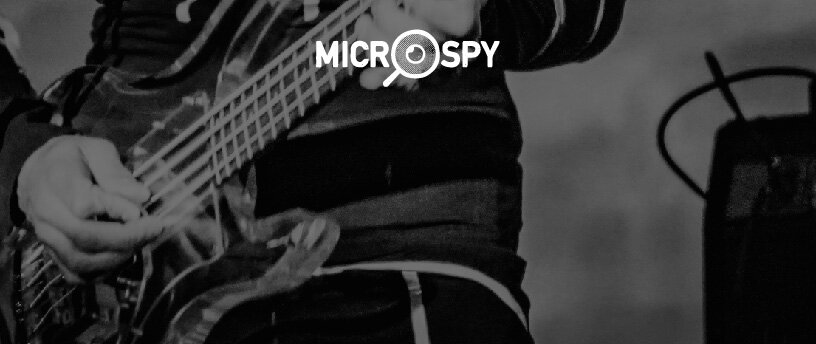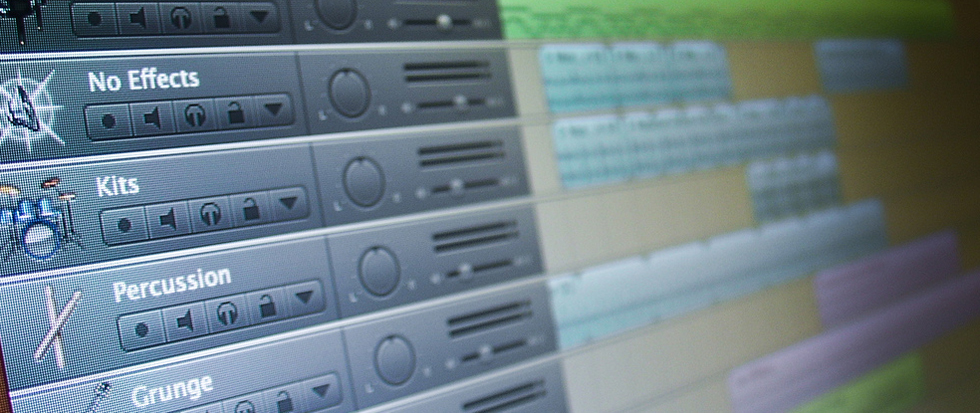
Coaxing Out Creative Confessions
Music can be a notoriously difficult thing to write, talk, or read about, depending on what stages of the process you’re involved in. Not in terms of enjoyment or superlatives, which are pretty easy and somewhat dependable, but to go beyond that, to suss out the cryptography of what moves one person when listening to a sonic assemblage, is much trickier and nearly impossible to really convey. Often times this applies doubly for those enveloped by its creation. The arcane practice of transposing one’s essence into the witchery of writing songs makes it all the more difficult to dissect it with language.
Not every musician of course. Erik Ratensperger from the hardcore band Jeromes Dream and his podcast Micro Spy wields the rare scalpel that peels back the thick skin of most musicians to expose the beating motivations behind their work. It’s a series less interested with the machinations behind the machine, a working musician’s 9-5, and more able to coax out creative confessions from the type of players who would be doing this work regardless of acclaim, toiling at their craft with an intrinsic motivation that civilians have a hard time understanding. Micro Spy bridges these worlds that are so often at odds.
Erik’s skill at crafting conversations that cut quickly past the mundane is seeded by his time with Jeromes Dream, then and now. They’re of several recent bands that locked in with a dedicated few at the time of their initial activity, but whose legend truly sprouted once their existence could no longer be taken for granted. Whispers of unbelievable basement/warehouse/DIY shows that couldn’t possibly have accommodated everyone who now says they were there. On this breeze a couple of decades pass to find Jeromes Dream reunited and hungry to record and tour again, and then some.
Jeromes Dream always delineated from the biting guitars and caustic shouts of hardcore but has continued evolving beyond even the already somewhat drastic change in shape and sound that the band ended up at compared to where they began. Their reunion album, titled/designated as LP, stretches the glutenous strands of their original work, daring to go beyond two and even three minutes for individual compositions but sacrificing none of the tension, bite, or boil that they mastered decades ago.
Jeromes Dream was deeply entangled in the hardcore/screamo community of its day, and upon reuniting, immediately forged friendships with those in the new guard such as Loma Prieta and heavy music super producer Jack Shirley. He has helped bring to life recordings by some of the strongest hardcore, post-metal, and otherwise rock-oriented bands in the past ten years and more and lent his ear to Jeromes Dream as they burned tape on their reunion album. From there it was a matter of touring, which found them scorching stages with the aforementioned Loma as well as the similarly reunited Daughters. So while not likely to be a household name, the cult status of Jeromes Dream is not unearned, whether among fans or fellow travelers from back when and today.
All of which speaks to Erik’s podcast Micro Spy, which carries the same name as the label the band used to release their album. It’s another music-oriented interview podcast, but strengthened by Jermoes Dream’s singular existence outside of the norms of popular or pedestrian music. Though admittedly only four episodes as of this writing into its nascent run, Micro Spy carries itself with a well-designed weight, confidence, and professionalism. Or maybe commitment is a better word, fealty to the impetus and impulse of this aggressive and driving music. This band and their colleagues did not get into this business for the slivers of scratch, but to give vent to the multitudinous shades of feeling that churn from the furnace of youth.
These feelings and ideas are discussed eloquently with Erik’s few guests so far, burning through a lot of the fat that permeates music podcasts at large. Micro Spy bears the benefit of guests who are are lifers on the same wavelength as the host, giving them an instant connection beyond just being fellow guitar players, an instrument often chosen for its ability to be bent to each individual’s will. Some of these guests are people that Erik has known since his earliest days, and others came in the wake of Jeromes Dream’s cult following that only swelled larger once they broke up.
As he speaks of the isolating and grueling nature of touring the world with kids at home with Alexis Marshall of Daughters, they each confirm each other’s experience of playing heavy music as a compulsion, something that must be done to stay alive financially and emotionally. But that doesn’t mean the experience is all catharsis, there’s a weight to performance, especially when your art does wind through the heavy life that someone like Alexis has experienced. It’s weary but thankful, humble but honest. The conversation is refreshing to hear them express both that this music is an expression but it’s also crafted from real work rather than the whims of the universe or a genetic or class gift.
To hear Jack Shirley talk about his process as a recording engineer is equally revelatory not because he’s getting into the wires of gear and technique, but through a larger ethos inherent in creating a record and making art. This is particularly true for the usually collaborative nature of making music, especially in a band, as Jack openly admits his disdain for the torture of assembling an album with a thousand tracks or layers or crawling bar by bar to place each note meticulously. Hardcore is living, breathing music and this is a producer who understands that perfection is often the antidote to the swirling energy that swarms around good art.
Maybe you don’t need another podcast, or the heart-cinching nature of this music just isn’t for you. But Erik’s Micro Spy is more than the chords and overdriven signals that inspired its creation, it’s a candid chat between like-minded artists about the tangible elements of their craft that is worth ruminating on. Where other interviewers have become content to just ask about influences and favorite bits of gear or increasingly similar stories of tour drudgery, Erik draws his friends and fellow travelers out into the open light, exposing the truly vital elements of what makes music worth experiencing.
// Levi Rubeck is a critic and poet currently living in the Boston area. Check his links at levirubeck.com.





